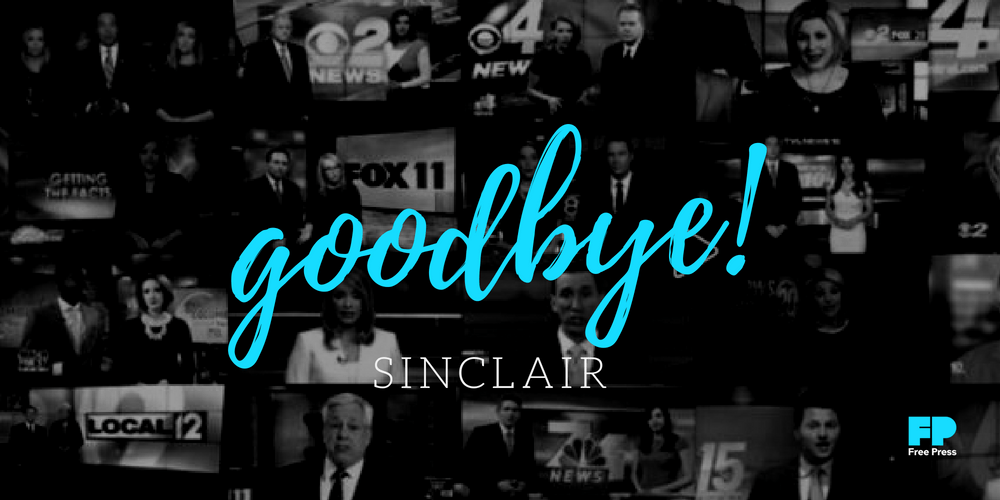Collapse of Sinclair TV Mega-Merger a Huge Victory for Viewers Across the Country

WASHINGTON — On Thursday morning, Tribune Media withdrew from its proposed merger with Sinclair Broadcast Group, effectively terminating the $3.9-billion deal that would have created the largest local television conglomerate in U.S. history.
The move follows the FCC’s late July release of a Hearing Designation Order (HDO), in which the agency criticized Sinclair for “lacking candor” in its plan to transfer control of several television stations to shell companies set up by the broadcaster. “The record raises significant questions as to whether those proposed divestitures were in fact ‘sham’ transactions,” according to the HDO.
The failure of the merger, which would have resulted in a broadcast giant with an audience reach of more than 70 percent of the country, is a major victory for public-interest groups that have rallied nationally against the deal’s many harms, maintaining that a larger Sinclair runs counter to the FCC’s central mandate to promote diversity, localism and competition in use of the public airwaves.
President Donald Trump recently tweeted his anger at the deal’s demise, praising Sinclair while calling “disgraceful” the FCC’s move to scuttle the proposed merger. Since the president’s inauguration, Sinclair has forced its local newscasts to air commentary that favors Trump administration policies and positions.
Free Press President and CEO Craig Aaron made the following statement:
“The collapse of the merger is great news for dozens of local communities that will be spared Sinclair’s slanted coverage and ridiculous must-runs.
“For years, Sinclair has been a dishonest broker at the FCC, using fuzzy math and sketchy shell companies to evade the agency’s rules and expand its empire. Its history of deceit and arrogant approach to the agency finally caught up with Sinclair. The broadcast giant’s double-dealing became too much for Tribune executives to bear. As details of Sinclair’s deceptions emerge — and with other investigations underway at the Department of Justice — it’s reasonable to question whether the broadcaster deserves to hold any licenses to profit off the public airwaves.
“Millions of people spoke out against this deal, and that public pressure was instrumental in keeping the spotlight on Sinclair and its history of airing reactionary and often racist content. Numerous investigative journalists, viral-video makers, and whistleblowers from inside the company made sure the truth about Sinclair’s ambitions got out. And conservative voices showed that even Sinclair’s partisan allies know the anti-competitive company can’t be trusted.
“Hopefully, FCC opposition to this deal is the start of a trend in favor of more independent voices and local choices for news. The FCC majority’s recent gutting of media ownership limits suggests otherwise. The demise of this deal presents an opportunity to embark on a new path, an opportunity that will be squandered if these stations were to be simply served up to other giant conglomerates.”